The flora in Southeastern Pennsylvania is lush, with lots of trees, wildflowers, grasses, crops and meadows. Although there is urban sprawl and construction, every year we see an abundance of blooms, and, of course, we want that to continue. Enter Mother Nature’s little helpers and my favorite insect, the honeybee.
Here in Phoenixville, Corrine Poulsen and Isaac Brown formed the Bee Positive Honey Foundation, dedicated to the welfare and preservation of the humble honeybee. The Foundation is committed to increasing bee populations by placing and managing bee colonies throughout Chester County, as well as creating diverse bee and pollinator forage areas.
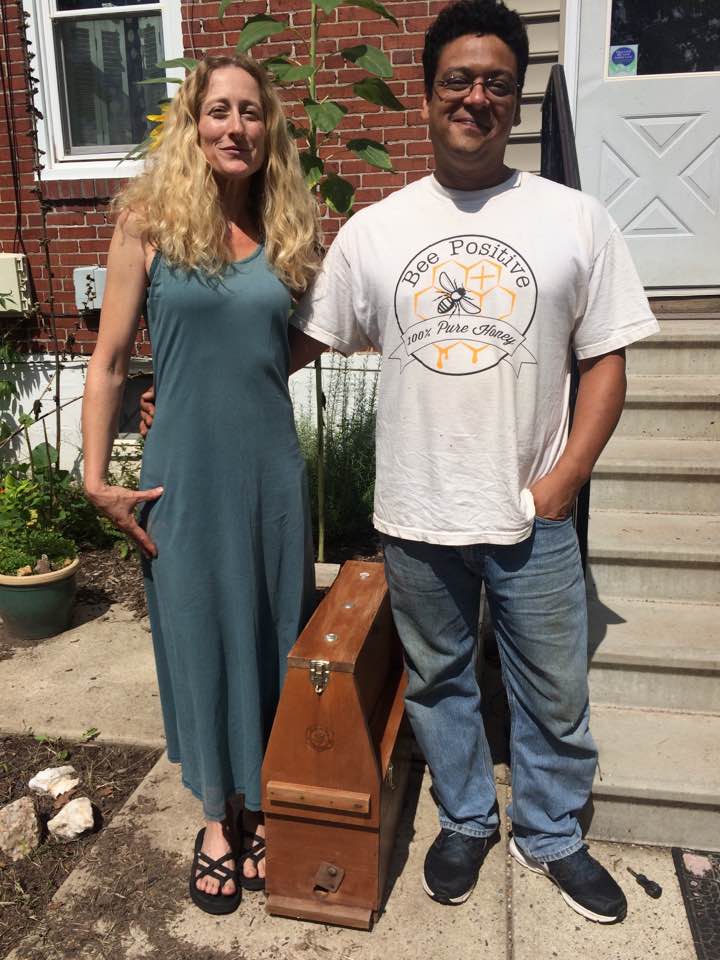
Corrine became interested in beekeeping a few years ago after reading the book The Secret Life of Bees.
“Each chapter began with a quote from a book on beekeeping, and I was interested in reading the books that it was quoting from,” Corrine explained. “I called a local beekeeper to learn about bees, and he told me there was no way to learn but to do it. I started out in a full bee suit, and by the fourth hive I was down to my street clothes. I was hooked! I spent 20 years working in corporate America, and I found working with stinging insects was more to my liking.”
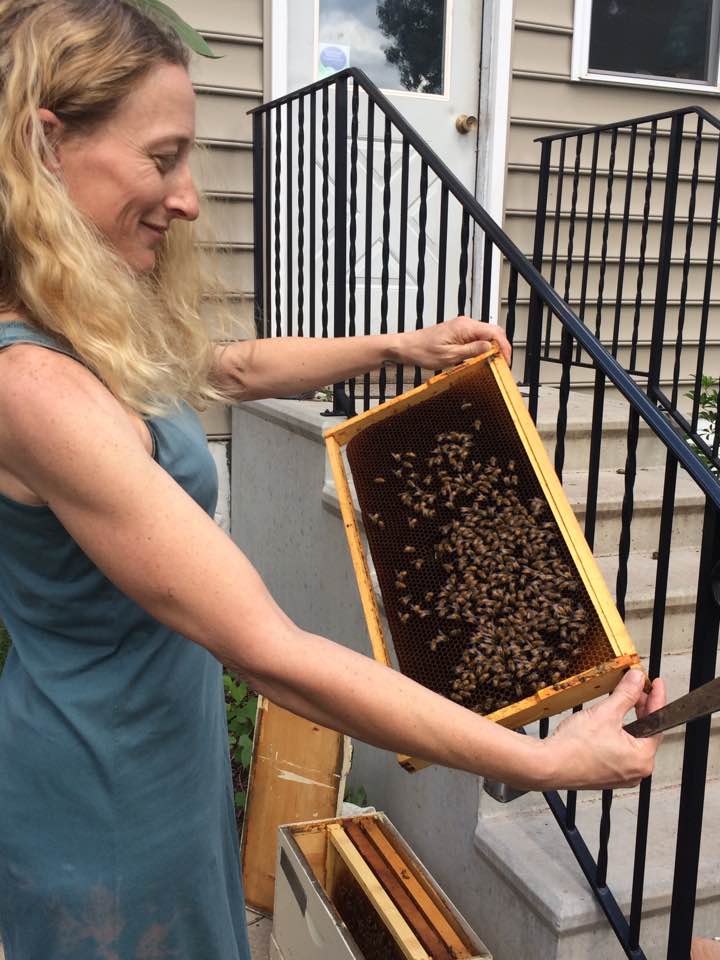
Corrine increased her knowledge and experience working for two years at a Chester County commercial beekeeping company.
Isaac Brown attended Phoenixville High School and Kutztown University, and then served in the Pennsylvania Army National Guard in Spring City. It was not until he met and fell in love with Corrine that he would ever have considered getting stung as much as he does. Luckily, the bees have their own charm, and he was swept into a world of buzzing energy. In spring 2015, they began dating and focusing on the bee business.
“It was time to buy a nucleus colonies of bees, a box with several frames of bees in it. I asked Isaac if I could borrow his car to go get bees. He said no, he didn’t want me to put boxes containing 10,000 bees in his car. I transported the colonies in my car, and when I brought them home to install them, he suddenly got interested,” Corrine said. “He wanted to install one of the nucs into its new home.”
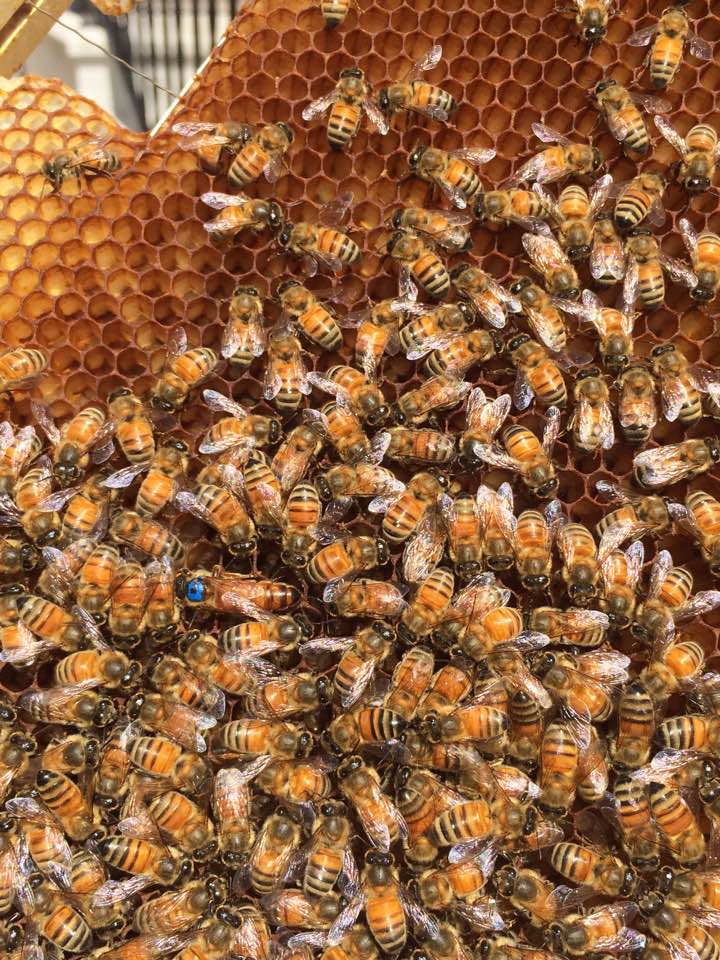
Soon after, they began the Bee Positive Honey Foundation to keep bees and educate the community (and now use Isaac’s car to pick up the bees).
Both Corrine and Isaac feel a connection to bees. “They are still a wonder to me, and while we do get stung once in a while, I am always humbled by how tolerant they are of our intrusions. Working with honeybees—particularly when working them without protective clothing—encourages you to slow down and work methodically, thoroughly and with great patience,” Corrine noted. “When we are calm, the bees are calm, and it becomes almost a moving meditation. We try to be good stewards and are constantly educating ourselves on ways to increase both bee numbers and bee forage areas that provide nectar and pollen sources throughout all seasons.”
Although a few fruits and vegetables are wind-pollinated, 70% of the food we eat requires the help of a pollinator to get the job done. Honeybees also help increase crop yields by upwards of 30%. Many of the feed crops for livestock are also dependent upon the honeybee. Nationwide in 2016, 44% of managed hives died. Here in Pennsylvania, it was 61% of managed hives lost, according to Corrine.
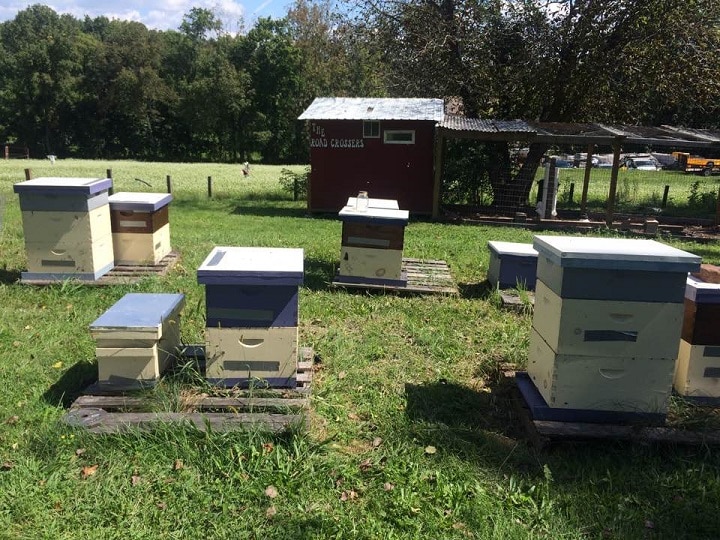
When I went to visit Corrine and Isaac at the Foundation, I was very excited. I love bees and wanted to see them close up. I was very calm despite the bees buzzing around. They had a job to do and paid me no mind. We walked around and checked out the hives, where they like to hydrate and where the Queen was hanging out in the observation hive. They also shared some fantastic fresh honey with me. There is nothing like hive-fresh honey. It is unlike anything from the grocery store and definitely not what is in those little bear-shaped squeeze bottles.
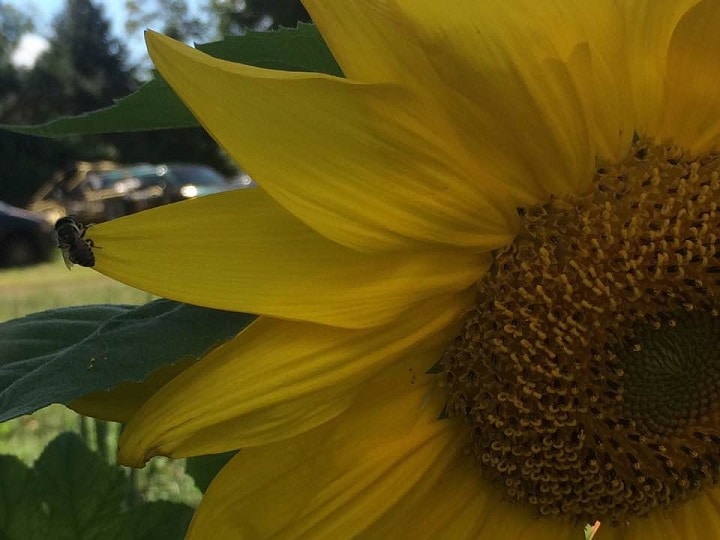
Although a honeybee and a bumblebee are similar—both of them are fuzzy—bumblebees are large in girth and have more hair, and are black and yellow. Their wings are dark and easy to see. Honeybees are smaller with slender abdomens, and can be golden and brownish in color. Their wings are translucent. Honeybees nest above ground, while bumblebees nest below ground. Neither is aggressive, but both will sting to defend their colony.
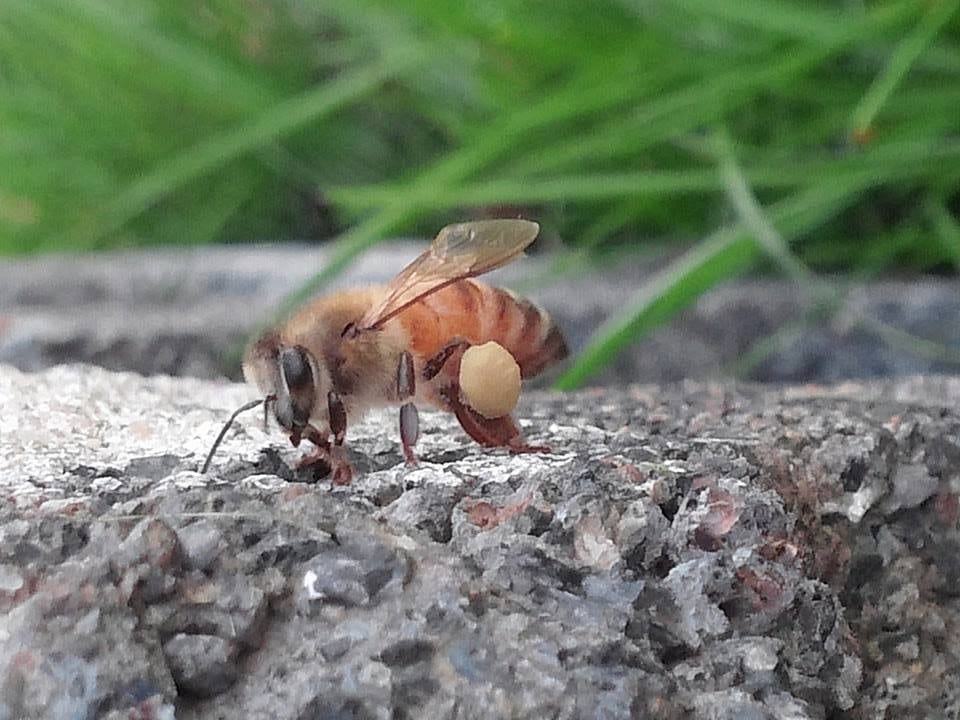
Above is a photo of a spring worker bee, which typically only live for about four weeks in spring and summer. This one spent her first 21 days inside a hive, performing various functions at different times. For example, a worker bee can only make wax between the ages of 10 to 16 days and royal jelly can only be made by 6- to 11-day-old workers. On day 22 or so, they become foragers.
She lived another week or two, flying until her wings shredded. Some will not return to the hive at their time of death and will just collapse in air, while others are so driven to provide for the colony that they will stagger into the hive in an attempt to perform one last duty and expire inside. When they aren’t making wax, 13- to 16-day-old worker bees take up the job of undertaker, removing their dead sisters from the hive, Corrine explained to me.
How can the people of Phoenixville, and elsewhere, help the Bee Positive Honey Foundation and the bee crisis?
- If you have a yard, let dandelions and Dutch white clover grow.
- Set your mower to the highest cutting length to allow the dandelions and clover to grow a few extra days.
- Support local farmers and buy local produce.
- Consider turning part of your barren grass lawn into a flowering, living lawn.
- Contact park officials when you see signs of herbicide or fungicide application and ask them to consider safer alternatives or whether this poisoning of the land is necessary rather than aesthetic.
- Do not use Roundup (a common weed-killing product).
- Take up beekeeping yourself. Once humans stop fearing something, we usually stop trying to kill it. You can host a hive at your house, and the Bee Positive Honey Foundation will maintain it and explain the entire process!
Find the Bee Positive Honey Foundation at 497 Schuylkill Rd., Phoenixville; phone: (484) 302-8234.
- Feature photo: Corrine Poulsen
- All other photos: Christine Tarlecki



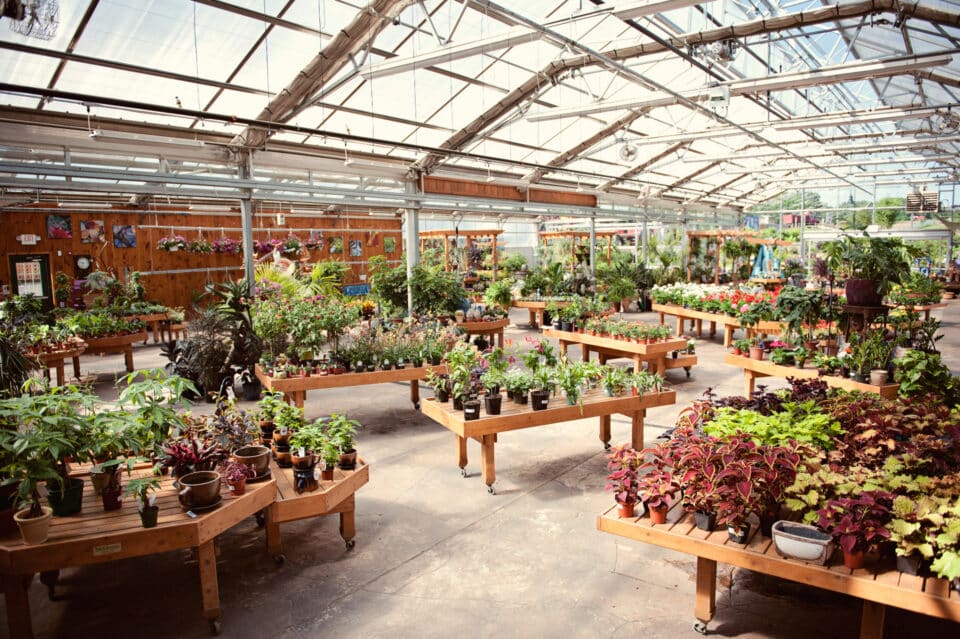
One Comment